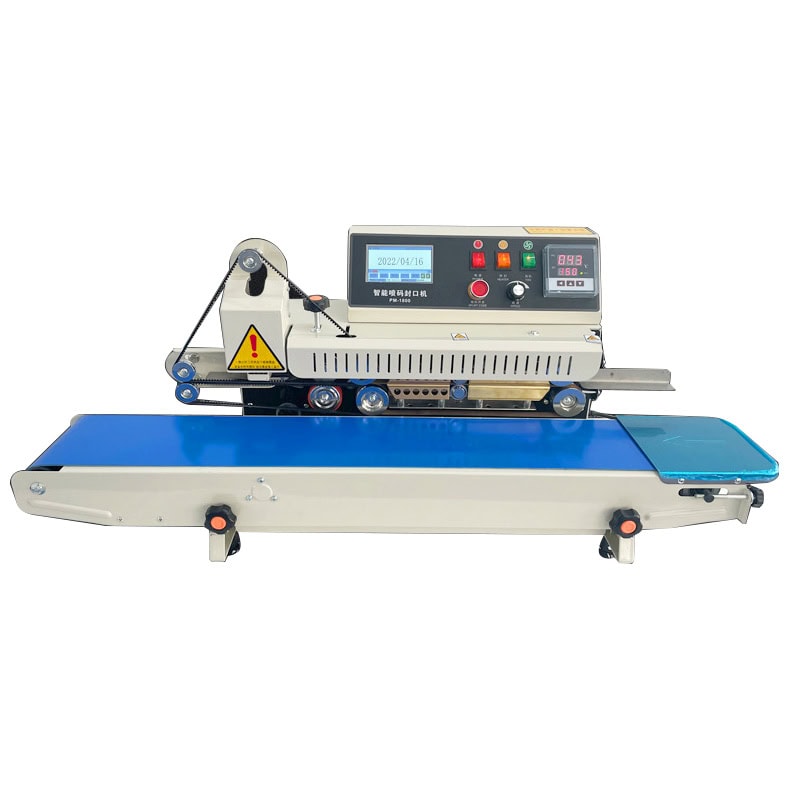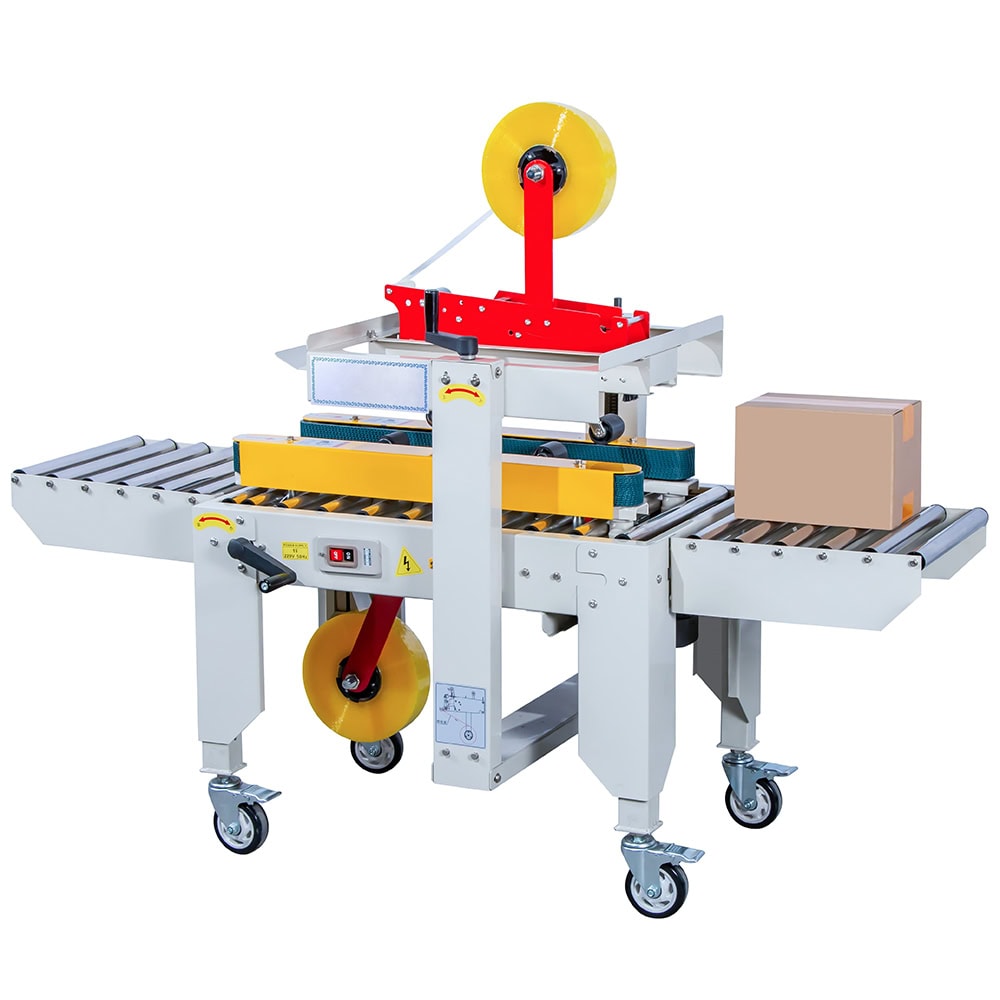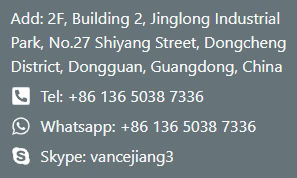If you’re having problems with your sealing, your products can spoil or not have the shelf life you need. Using the right sealing machine will help you have a secure package that lasts. Let’s talk about what you need for different types of packaging.
A sealing machine is used to seal packaging by applying heat, pressure, or adhesive. You have heat sealers, induction sealers, and vacuum sealers.
Knowing the different types of sealing machines will help you choose the right one.

What is a Sealing Machine Used For?
Sealing machines are critical for securing product packaging, enhancing product longevity, and maintaining quality. They apply heat, pressure, or adhesives to close packages like bags, bottles, cartons, and trays. These machines are essential in industries ranging from food and beverages to pharmaceuticals and electronics.
A sealing machine ensures that the product inside remains protected from external contaminants, moisture, and tampering. By creating airtight seals, these machines preserve the freshness and integrity of the contents, making them indispensable in commercial and industrial settings.
Types of Sealing Machines
There are several types of sealing machines, each designed for specific packaging needs:
- Heat Sealers: Utilize heat to melt packaging material and create a secure seal. They are common in food and pharmaceutical industries.
- Induction Sealers: Use electromagnetic induction to seal foil-lined bottle caps, ensuring tamper-proof packaging.
- Vacuum Sealers: Remove air from packaging before sealing, ideal for food preservation and extending shelf life.
- Tray Sealers: Seal trays with film, used in ready-meal packaging.
Each of these machines is customized to suit different products, offering a range of sealing technologies to meet diverse industrial requirements. For instance, induction sealing is preferred in packaging machines used in pharmaceutical and beverage sectors for its secure and efficient process.
Heat Sealing Machines
Heat sealing machines are among the most versatile and widely used. They use thermal energy to bond materials like plastic, paper, and laminates. The two main categories are:
- Impulse Sealers: Heat the sealing wire only when the handle is pressed down.
- Constant Heat Sealers: Maintain a steady temperature and are suitable for thicker materials.
Impulse sealers are commonly found in packaging machines for food items, while constant heat sealers are ideal for heavy-duty applications, such as industrial packaging. Heat sealing is crucial for ensuring the product’s safety, particularly in the food industry, where contamination can be a major issue.
Induction Sealing Machines
Induction sealing is primarily used to create airtight seals on containers. It’s commonly found in the food, beverage, and pharmaceutical industries. The process involves passing a bottle with a foil-lined cap through an induction coil, creating a hermetic seal.
This method is highly reliable for sealing bottles of liquids, preventing leaks, and ensuring the product’s freshness. In combination with a bottle unscrambler, an induction sealing system can significantly enhance the efficiency of a production line by automating multiple steps in the bottling process.
Vacuum Sealing Machines
Vacuum sealers are ideal for preserving perishable goods by removing air from the packaging. This process significantly extends the shelf life of products like meats, cheeses, and dried foods. These machines are commonly found in both commercial kitchens and industrial settings.
Vacuum packaging is widely used in conjunction with shrink wrap machines, offering a complete solution for product preservation and protection. This type of sealing is essential in industries where oxygen exposure can degrade product quality.
Tray Sealing Machines
Tray sealers are widely used in food packaging, particularly for sealing trays with a plastic film. They help protect fresh foods, ready meals, and other perishable products. Different types of tray sealers include manual, semi-automatic, and fully automatic machines, each suited to varying production scales.
For high-volume packaging operations, automatic tray sealers provide faster production speeds and consistent seal quality. They are compatible with various packaging materials, making them flexible solutions for food manufacturers.
The Role of Shrink Packaging in Sealing
Shrink packaging machines apply heat to shrink the film tightly around the product, providing a tamper-evident and secure seal. This method is often used for bundling items like beverages and multi-packs, and it adds an extra layer of protection during shipping and handling.
Shrink wrap machines are particularly effective in reducing packaging waste, as they use minimal material while offering strong protection. Many industries rely on shrink packaging to maintain product safety and shelf appeal.
Choosing the Right Sealing Machine
When selecting a sealing machine, consider the type of packaging material, product size, production speed, and specific industry needs. For example, heat sealers are ideal for small-scale operations, while high-speed automatic tray sealers cater to larger production volumes.
For businesses with specific requirements, such as labeling precision or product customization, a customized labeling machine integrated with a sealing machine can offer tailored solutions that streamline packaging processes.
Seal Packaging Machine for Automation
Automated seal packaging machines increase efficiency, particularly in high-volume industries. These machines reduce human error and speed up production by performing sealing operations without manual intervention, ensuring uniform seals on each package.
Automation plays a critical role in industries like pharmaceuticals and food, where consistency and speed are essential. A fully automated sealing and labeling system ensures minimal downtime and maximum throughput.
Custom Sealing Solutions
For businesses with unique packaging needs, custom sealing machines are available. These can be tailored to accommodate different product sizes, packaging types, and specific industry regulations.
Customization is crucial for businesses handling non-standard products or requiring specialized packaging solutions. Integrating equipment like a label printer or barcode printer with a sealing machine provides a comprehensive solution for both packaging and labeling.













